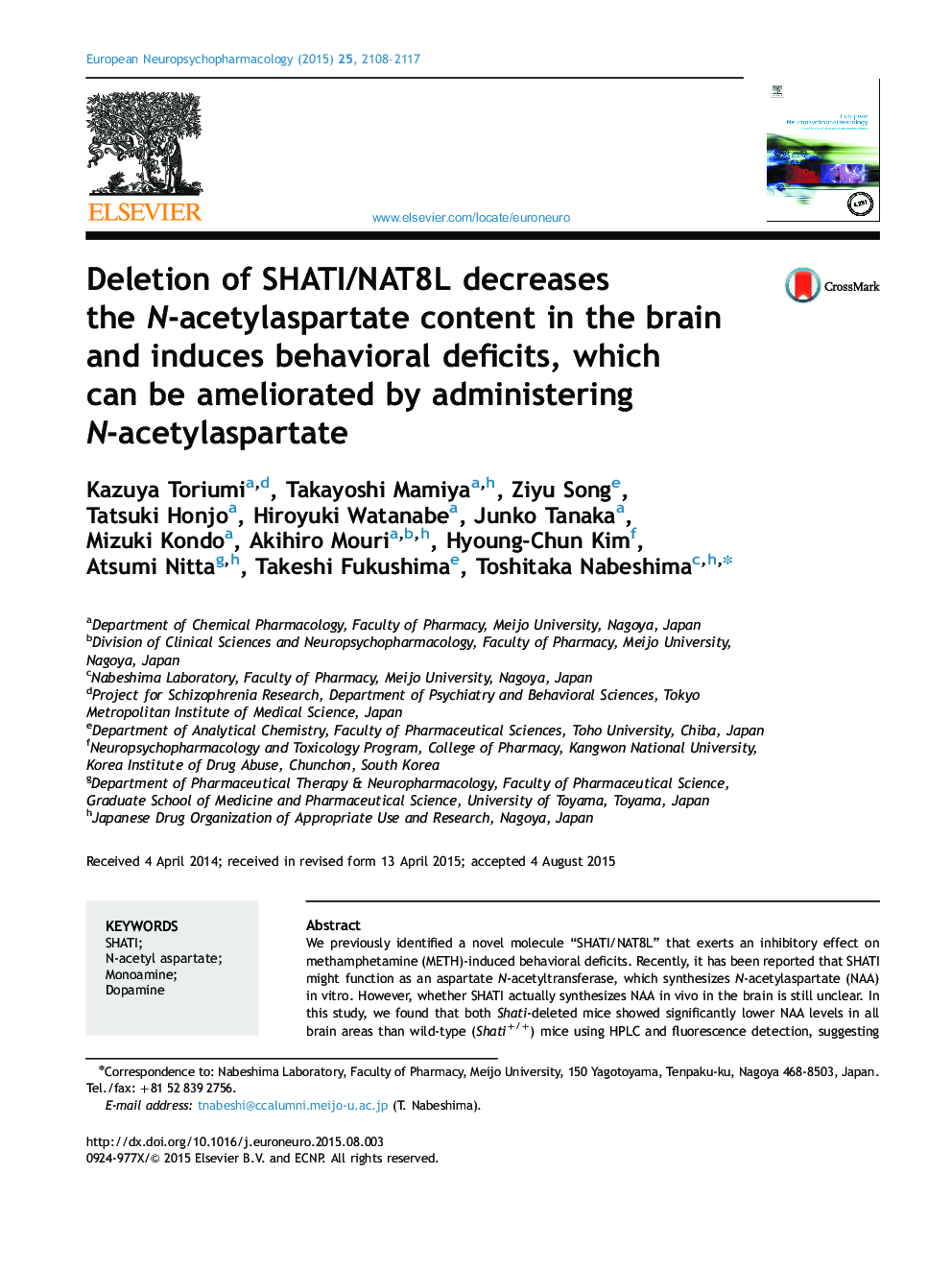| Article ID | Journal | Published Year | Pages | File Type |
|---|---|---|---|---|
| 10298833 | European Neuropsychopharmacology | 2015 | 10 Pages |
Abstract
We previously identified a novel molecule “SHATI/NAT8L” that exerts an inhibitory effect on methamphetamine (METH)-induced behavioral deficits. Recently, it has been reported that SHATI might function as an aspartate N-acetyltransferase, which synthesizes N-acetylaspartate (NAA) in vitro. However, whether SHATI actually synthesizes NAA in vivo in the brain is still unclear. In this study, we found that both Shati-deleted mice showed significantly lower NAA levels in all brain areas than wild-type (Shati+/+) mice using HPLC and fluorescence detection, suggesting that SHATI regulates NAA content in the brain. Next, we measured the levels of monoamines and their metabolites in the adult mouse brain and found that the activities of monoaminergic systems were altered in Shatiâ/â mice. In particular, dopaminergic turnover increased in the nucleus accumbens (NAc) in Shatiâ/â mice, suggesting activation of the dopaminergic system. In fact, basal level of extracellular dopamine, and METH-induced dopamine release in the NAc of Shatiâ/â mice was significantly higher than that of Shati+/+ and Shati+/â mice, which is consistent with findings that Shatiâ/â mice showed enhanced hyperlocomotion induced by METH. Moreover, in the forced swimming test, Shati-deleted mice showed a shortened immobility time, which was improved by intracerebroventricular (i.c.v.) administration of NAA prior to the test in Shati+/â but not in Shatiâ/â mice. The i.c.v. preinjection of NAA inhibited dopamine release after high K+ stimulation in the NAc of Shati+/+ and Shati+/â mice, but not Shatiâ/â mice. These results suggested that the behavioral deficits in Shati-deleted mice were caused by dopaminergic abnormality via deprivation of NAA.
Keywords
Related Topics
Life Sciences
Neuroscience
Biological Psychiatry
Authors
Kazuya Toriumi, Takayoshi Mamiya, Ziyu Song, Tatsuki Honjo, Hiroyuki Watanabe, Junko Tanaka, Mizuki Kondo, Akihiro Mouri, Hyoung-Chun Kim, Atsumi Nitta, Takeshi Fukushima, Toshitaka Nabeshima,
